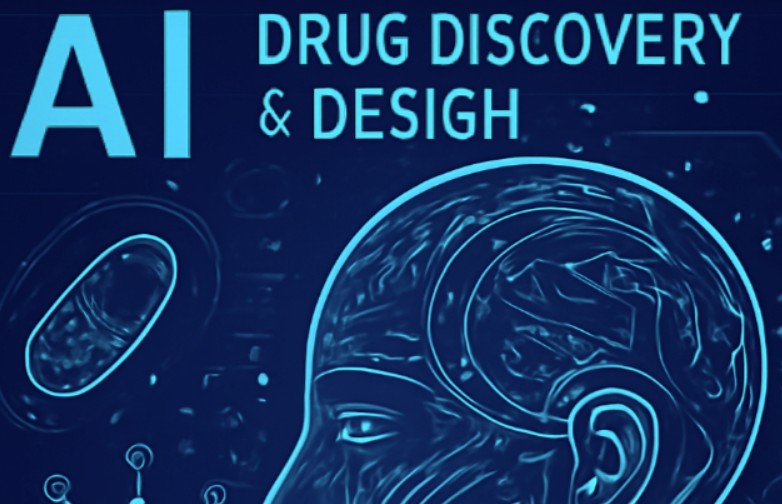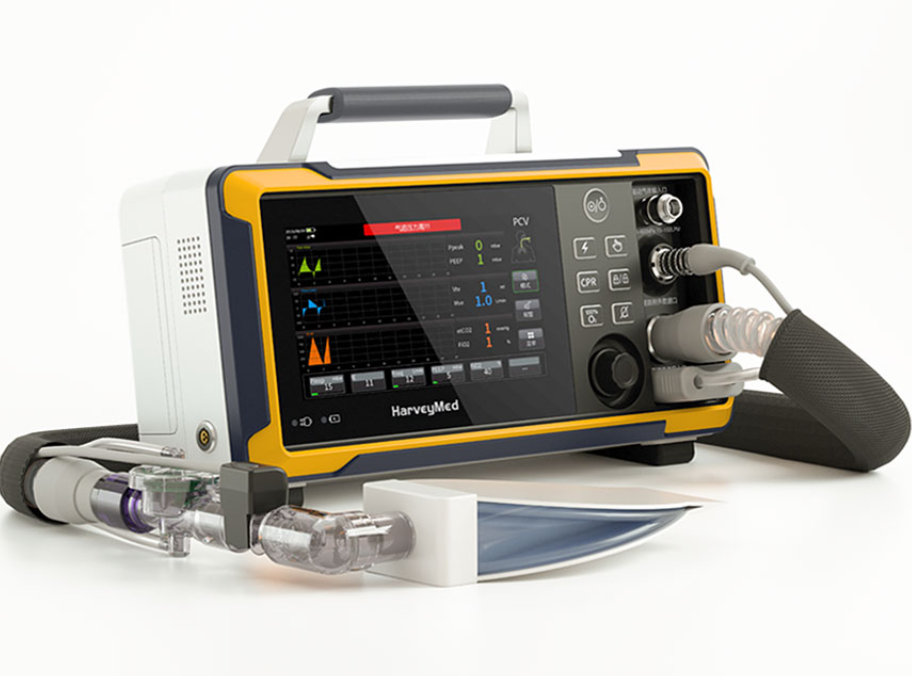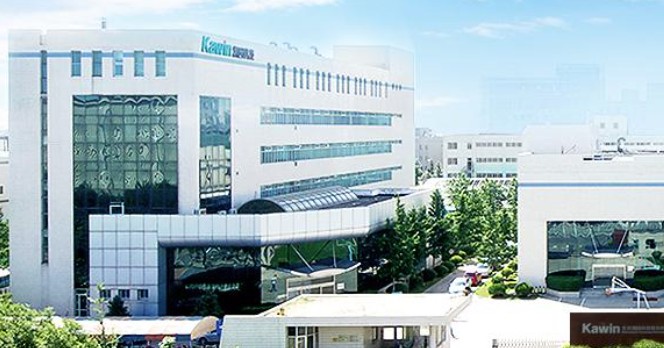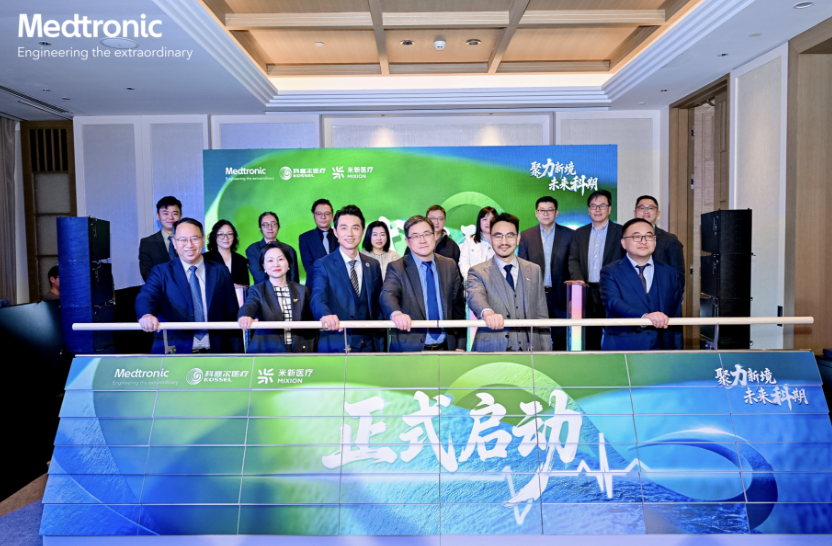昨日(11月28日),深陷舆论漩涡的贺建奎如期到达位于香港大学李兆基演讲厅的第二届人类基因组编辑国际峰会现场,并发表了主题演讲,从而引来业内和全球的瞩目。在贺建奎完成上午演讲和提问环节后,今日中午,峰会组委会主席、诺贝尔奖学者戴维-巴尔的摩代表组委会发布了第二届人类基因组编辑国际峰会组委会声明。
声明称,在这次峰会上,我们听到了一个出人意料和令人深感不安的说法,即人类胚胎被编辑和植入,导致怀孕和双胞胎出生。我们建议进行独立评估以核实这一消息,并确定消息提到的DNA改造是否已经确定发生。即使上述内容得到了证实,程序上也是不负责任的,不符合国际准则的。
这一项目的缺陷包括医疗指示不足、研究方案设计不当、不符合保护研究对象福利的道德标准,同时,临床程序的开发、审查和实施均缺乏透明度。
组委会得出结论,临床实践的科学理解和技术要求仍然有太大不确定性,风险太大,目前不应允许进行生殖细胞编辑的临床试验。然而,过去三年的讨论进展和本次峰会的讨论表明,现在是时候为相关试验确定一个严格、负责任的标准了。
声明中提到,本次峰会的举办是为了评估不断演变的科学面貌、可能的临床应用,以及随之而来的社会大众对人类基因编辑技术的反应。虽然组委会赞扬体细胞基因编辑进入临床试验的快速进展,但我们继续认为,在现阶段,任何临床使用生殖细胞编辑仍然是不负责任的。
以下为声明全文
November 29, 2018
In December 2015, the U.S. National Academy of Sciences and U.S. National Academy of Medicine, the Royal Society of the United Kingdom, and the Chinese Academy of Sciences hosted an international summit in Washington, D.C., to discuss scientific, ethical, and governance issues associated with human genome editing. At its conclusion, the summit organizing committee released a statement identifying areas of research and clinical use that could proceed within current regulatory and governance protocols. The committee also stated that it would be irresponsible to proceed with any clinical use of heritable "germline" editing at that time. Further, it called for continued international discussion of potential benefits, risks, and oversight of this rapidly advancing technology.
As part of their commitment to fostering in-depth and international discussion about human genome editing, the Academy of Sciences of Hong Kong, the Royal Society of the United Kingdom, and the U.S. National Academy of Sciences and U.S. National Academy of Medicine organized the Second International Summit on Human Genome Editing in Hong Kong to assess the evolving scientific landscape, possible clinical applications, and attendant societal reactions to human genome editing. While we, the organizing committee of the second summit, applaud the rapid advance of somatic gene editing into clinical trials, we continue to believe that proceeding with any clinical use of germline editing remains irresponsible at this time.
Human Genome Editing Research
Basic and preclinical research is rapidly advancing the science of somatic and germline genome editing. Better understanding and design of genome editing techniques, including base editing, have produced significant increases in efficiency and precision while greatly reducing off-target events. As was anticipated, somatic genome editing is now being tested in patients.
Making changes in the DNA of embryos or gametes could allow parents who carry disease-causing mutations to have healthy, genetically related children. However, heritable genome editing of either embryos or gametes poses risks that remain difficult to evaluate. Concerns persist that changes may be made in only some cells of early-stage embryos, leaving unedited cells to perpetuate a disease. Germline editing could produce unintended harmful effects for not just an individual but also for that individual’s descendants. Changes to a particular trait may have unanticipated effects on other traits that could vary from person to person and in response to environmental influences.
The variability of effects produced by genetic changes makes it difficult to conduct a thorough evaluation of benefits and risks. Nevertheless, germline genome editing could become acceptable in the future if these risks are addressed and if a number of additional criteria are met. These criteria include strict independent oversight, a compelling medical need, an absence of reasonable alternatives, a plan for long-term follow-up, and attention to societal effects. Even so, public acceptability will likely vary among jurisdictions, leading to differing policy responses.
The organizing committee concludes that the scientific understanding and technical requirements for clinical practice remain too uncertain and the risks too great to permit clinical trials of germline editing at this time. Progress over the last three years and the discussions at the current summit, however, suggest that it is time to define a rigorous, responsible translational pathway toward such trials.
A Proposed Translational Pathway
A translational pathway to germline editing will require adhering to widely accepted standards for clinical research, including criteria articulated in genome editing guidance documents published in the last three years.[1] Such a pathway will require establishing standards for preclinical evidence and accuracy of gene modification, assessment of competency for practitioners of clinical trials, enforceable standards of professional behavior, and strong partnerships with patients and patient advocacy groups.
Report of Clinical Use of Germline Editing
At this summit we heard an unexpected and deeply disturbing claim that human embryos had been edited and implanted, resulting in a pregnancy and the birth of twins. We recommend an independent assessment to verify this claim and to ascertain whether the claimed DNA modifications have occurred. Even if the modifications are verified, the procedure was irresponsible and failed to conform with international norms. Its flaws include an inadequate medical indication, a poorly designed study protocol, a failure to meet ethical standards for protecting the welfare of research subjects, and a lack of transparency in the development, review, and conduct of the clinical procedures.
An Ongoing International Forum
The organizing committee calls for an ongoing international forum to foster broad public dialogue, develop strategies for increasing equitable access to meet the needs of underserved populations, speed the development of regulatory science, provide a clearinghouse for information about governance options, contribute to the development of common regulatory standards, and enhance coordination of research and clinical applications through an international registry of planned and ongoing experiments.
In addition to the establishment of an international forum, the organizing committee calls upon national academies and learned societies of science and medicine around the world to continue the practice of holding international summits to review clinical uses of genome editing, to gather diverse perspectives, to inform decisions by policymakers, to formulate recommendations and guidelines, and to promote coordination among nations and jurisdictions.
[1] See, for example, National Academies of Sciences, Engineering, and Medicine, Human Genome Editing: Science, Ethics, and Governance (Washington, DC: The National Academies Press, 2017) and Nuffield Council on Bioethics, Genome Editing and Human Reproduction (London: Nuffield Council on Bioethics, 2018).
Organizing Committee
David Baltimore1,2 (committee chair)
President Emeritus and Robert Andrews Millikan Professor of Biology
California Institute of Technology
United States
Alta Charo2
Warren P. Knowles Professor of Law and Bioethics
University of Wisconsin, Madison
United States
George Q. Daley2
Dean of the Faculty of Medicine and Caroline Shields Walker Professor of Medicine
Harvard Medical School
United States
Jennifer A. Doudna1,2
Investigator, Howard Hughes Medical Institute; and
Professor, Department of Molecular and Cell Biology and Department of Chemistry
University of California, Berkeley
United States
Kazuto Kato
Professor of Biomedical Ethics and Public Policy
Graduate School of Medicine
Osaka University
Japan
Jin-Soo Kim
Director of Center for Genome Engineering
Institute for Basic Science
Seoul National University
South Korea
Robin Lovell-Badge3
Senior Group Leader
The Francis Crick Institute; and
Special Visiting Professor
University of Hong Kong
United Kingdom
Jennifer Merchant
Professor of Legal and Political Institutions
Université de Paris II (Panthéon-Assas)
France
Indira Nath
Visiting Professor, Bio-Support Unit
Department of Biotechnology
All India Institute of Medical Sciences (AIIMS); and
Former Raja Ramanna Fellow and Emeritus Professor
National Institute of Pathology
India
Duanqing Pei
Professor and Director General
Guangzhou Institutes of Biomedicine and Health
Chinese Academy of Sciences
China
Matthew Porteus
Associate Professor of Pediatrics
Division of Stem Cell Transplantation and Regenerative Medicine
Stanford University
United States
医谷链
来源:医谷网综合报道
为你推荐
 资讯
资讯 先声药业一款双抗在研药物10.58亿欧元授权勃林格殷格翰
1月26日,先声药业发布公告称,与勃林格殷格翰达成一项许可与合作协议,双方将共同开发先声药业的临床前阶段TL1A IL23p19双特异性抗体SIM0709,用于炎症性肠病(IBD)的治疗。
2026-01-27 17:55
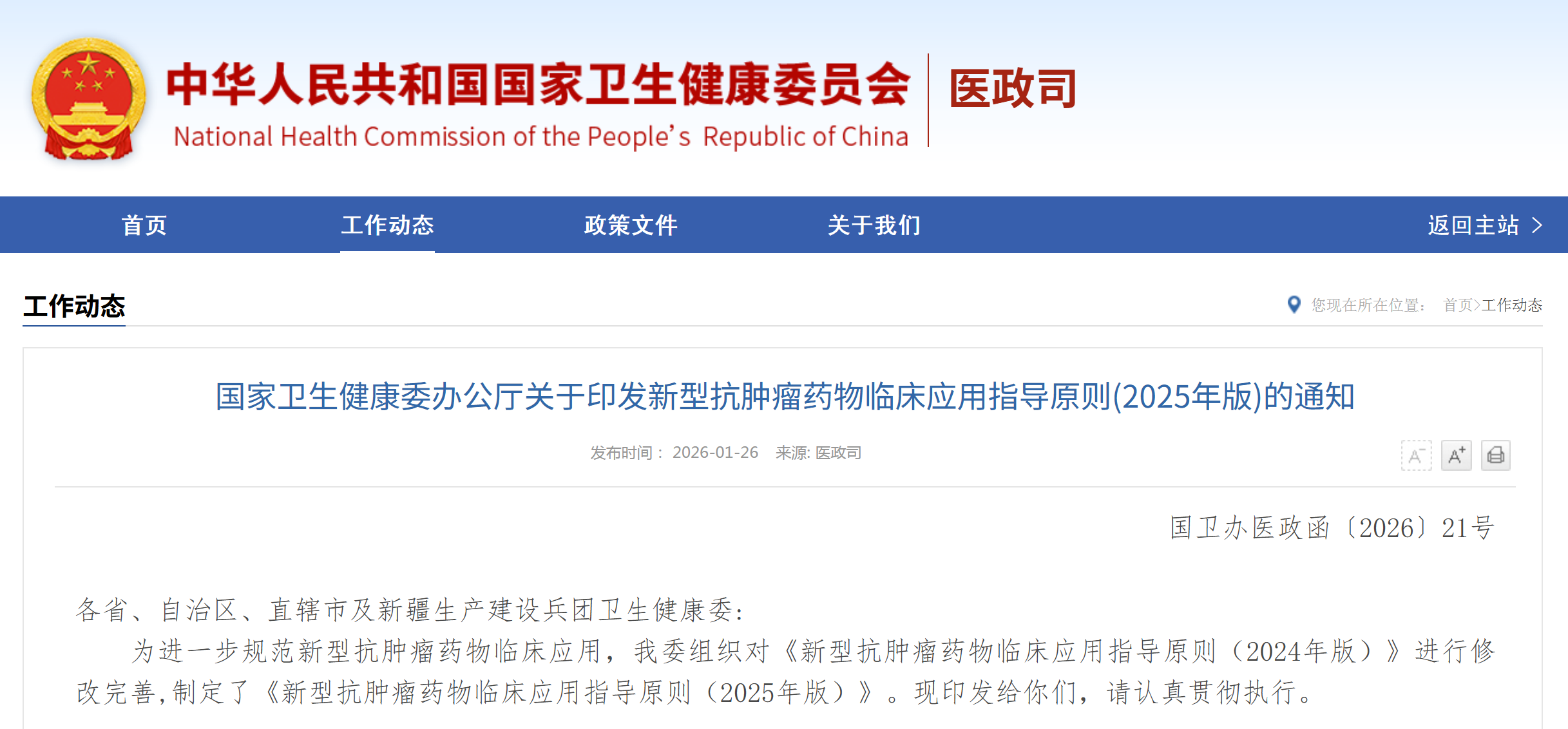 资讯
资讯 国家卫健委:新型抗肿瘤药物临床应用指导原则(2025年版)
新型抗肿瘤药物的一个显著特征是出现一批针对分子异常特征的药物——即分子靶向药物。 目前,根据是否需要做靶点检测,可以将常用小分子靶向药物、大分子单抗类药物以及小分子...
2026-01-27 11:46
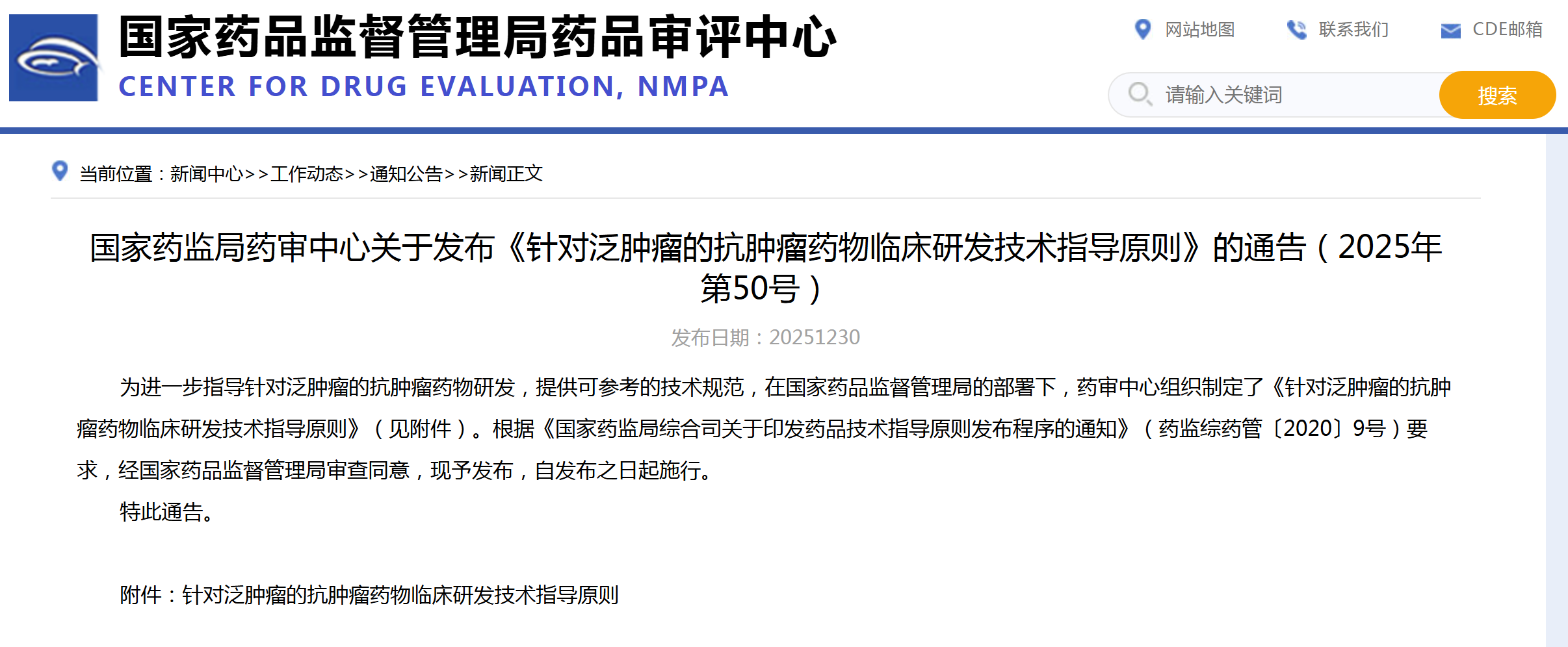 资讯
资讯 CDE:针对泛肿瘤的抗肿瘤药物临床研发技术指导原则
泛肿瘤是从肿瘤起源和病因学等角度,将多种组织来源的肿瘤视为同一类疾病,并且寻求相同的治疗手段。当针对共有的分子改变开发药物时,不同肿瘤的患者均有可能从相同的药物治疗...
2026-01-25 18:54
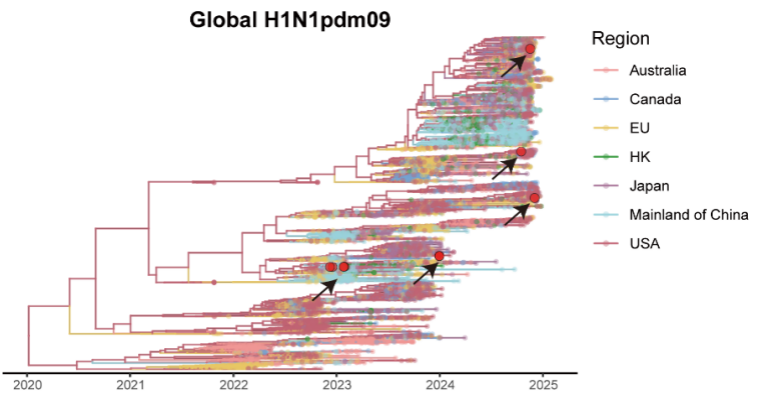 资讯
资讯 病毒“突变”不等于更强生存力——华山张文宏教授团队发现:敏感性下降,往往伴随适应性下降
玛巴洛沙韦敏感性降低的突变发生率仍然极低(0 05%),未发现典型的I38T耐药突变。
2026-01-24 12:22
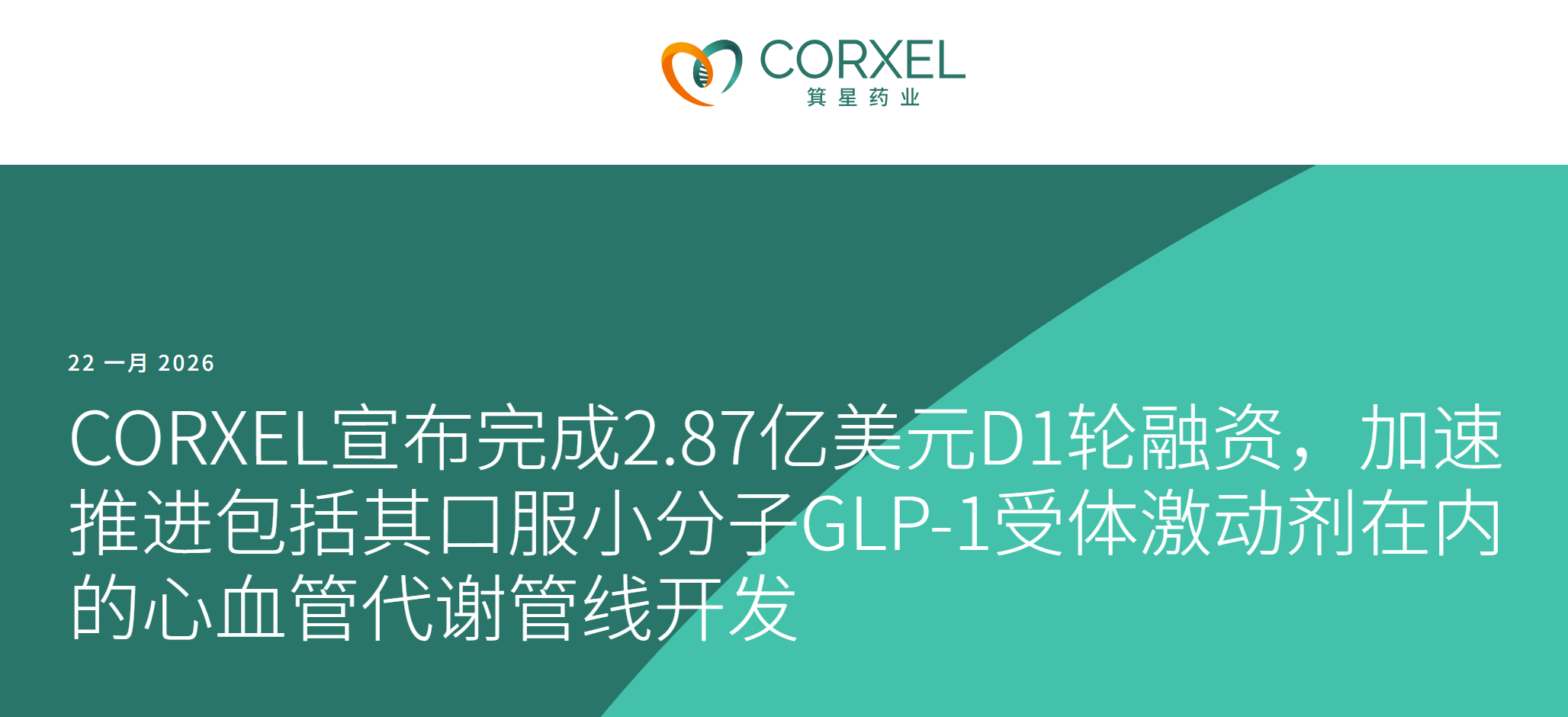 资讯
资讯 箕星药业宣布成功完成D1轮2.87亿美元融资,推进口服GLP-1药物开发
1月22日消息,箕星药业有限公司(Corxel Pharmaceuticals Limited)宣布已成功完成D1轮融资,募集资金高达2 87亿美元。
2026-01-23 18:00
 资讯
资讯 基因启明完成亿元天使轮融资,加码iNKT细胞疗法研发与临床转化
本轮融资由人合资本独家投资。融资资金将重点用于推进公司核心iNKT细胞药物的临床试验进程,同时加速新管线的研发拓展与技术平台升级。
2026-01-23 14:05
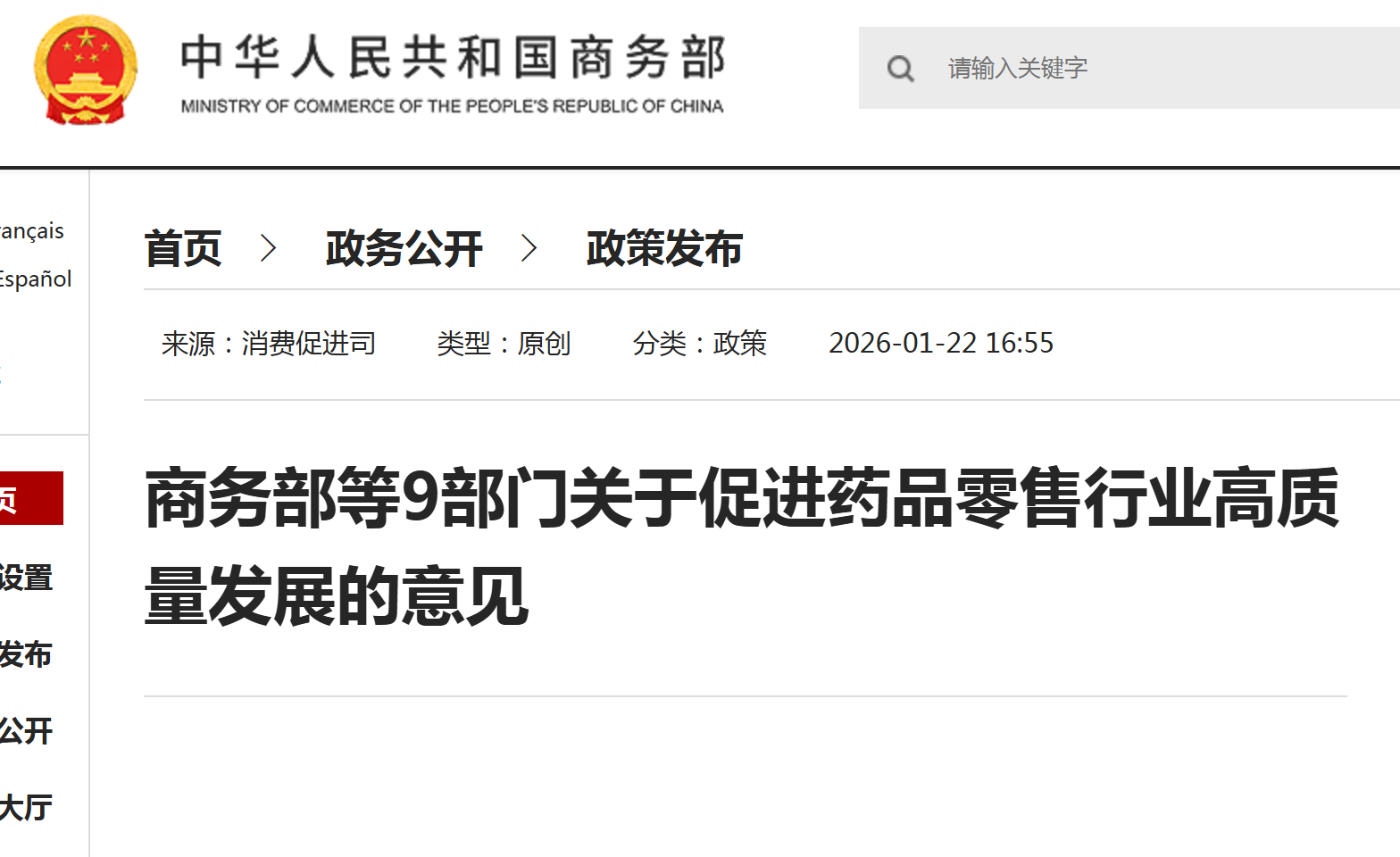 资讯
资讯 商务部、国家发改委、国家卫健委、国家医保局等9部门印发促进药品零售行业高质量发展的意见
鼓励符合监管要求的实体医疗机构、互联网医院与药品零售企业依托电子处方流转平台进行处方流转。鼓励建设非医保药品自费处方电子流转平台,规范和完善相关药学服务。
2026-01-23 11:04
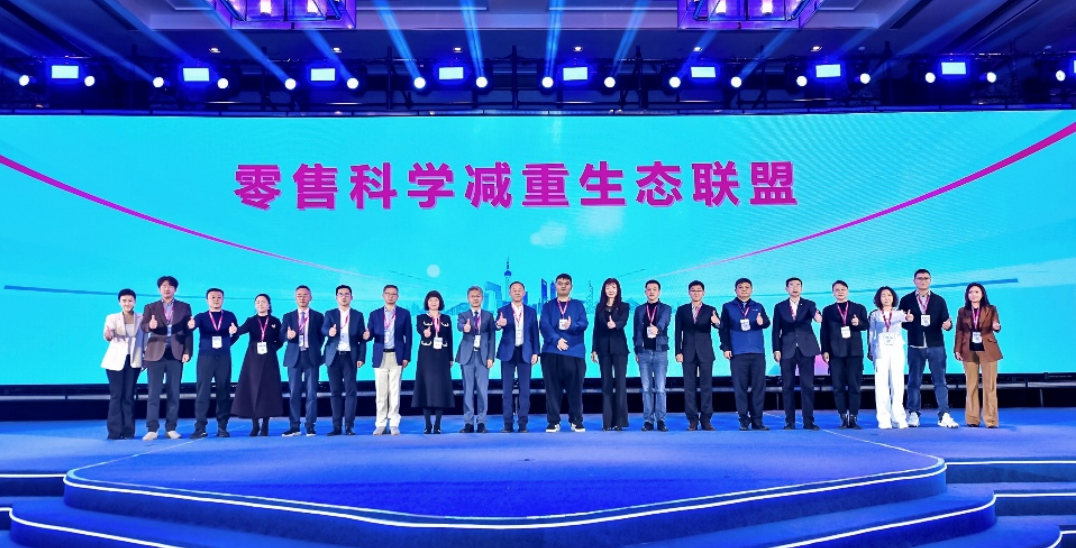 资讯
资讯 诺和诺德聚焦零售药店体重管理服务,启动“零售科学减重生态联盟”
1月22日,诺和诺德在福州举办超越·共盈——诺和诺德零售生态伙伴大会,大会汇聚连锁零售药店管理层、临床专家、资深药师、行业智库、零售生态合作伙伴等多方力量,正式启动零...
2026-01-22 21:53
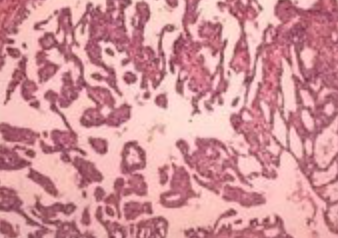 资讯
资讯 优赫得在华获批治疗既往接受过一种含曲妥珠单抗治疗方案的局部晚期或转移性HER2阳性成人胃或胃食管结合部腺癌患者
基于DESTINY-Gastric04 III期试验结果,与雷莫西尤单抗+紫杉醇相比,优赫得®可为患者带来具有显著统计学差异和临床意义的总生存期(OS)改善,两年OS率实现翻倍
2026-01-22 17:53
 资讯
资讯 传奇生物CAR-T细胞药物 Carvykti(西达基奥仑赛)2025年销售额18.87 亿美元,同比增长 95.9%
强生2025年全年收入达到941 93亿美元,同比增长6%,净利润268 04亿美元,同比增长90 6%,调整后净利润262 15亿美元,同比增长8 1%。
2026-01-22 16:48
 资讯
资讯 从收费难题到医保立项:机器人诊疗迎来普及拐点
2025年12月5日,国家医保局向各省医保局下发了《手术和治疗辅助操作类医疗服务价格项目立项指南(征求意见稿)》,用于在医保体系内部征求意见。
文/梁瑜 2026-01-21 16:48
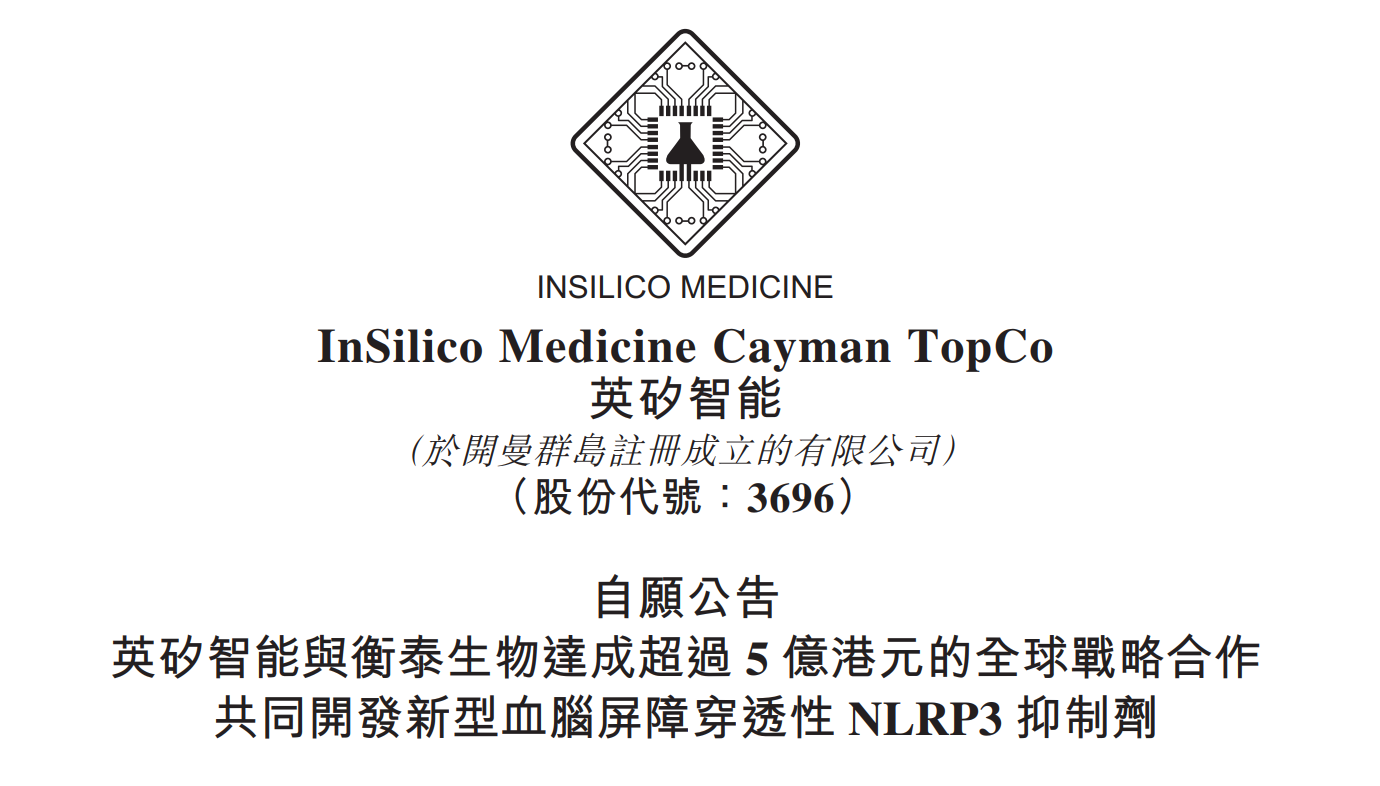 资讯
资讯 英矽智能6600万美元授权一款具有穿透血脑屏障的潜在在研抗炎药物
1月20日,英矽智能发布公告称,与深圳衡泰生物科技有限公司就 ISM8969 项目达成共同开发合作协议。
2026-01-21 15:42
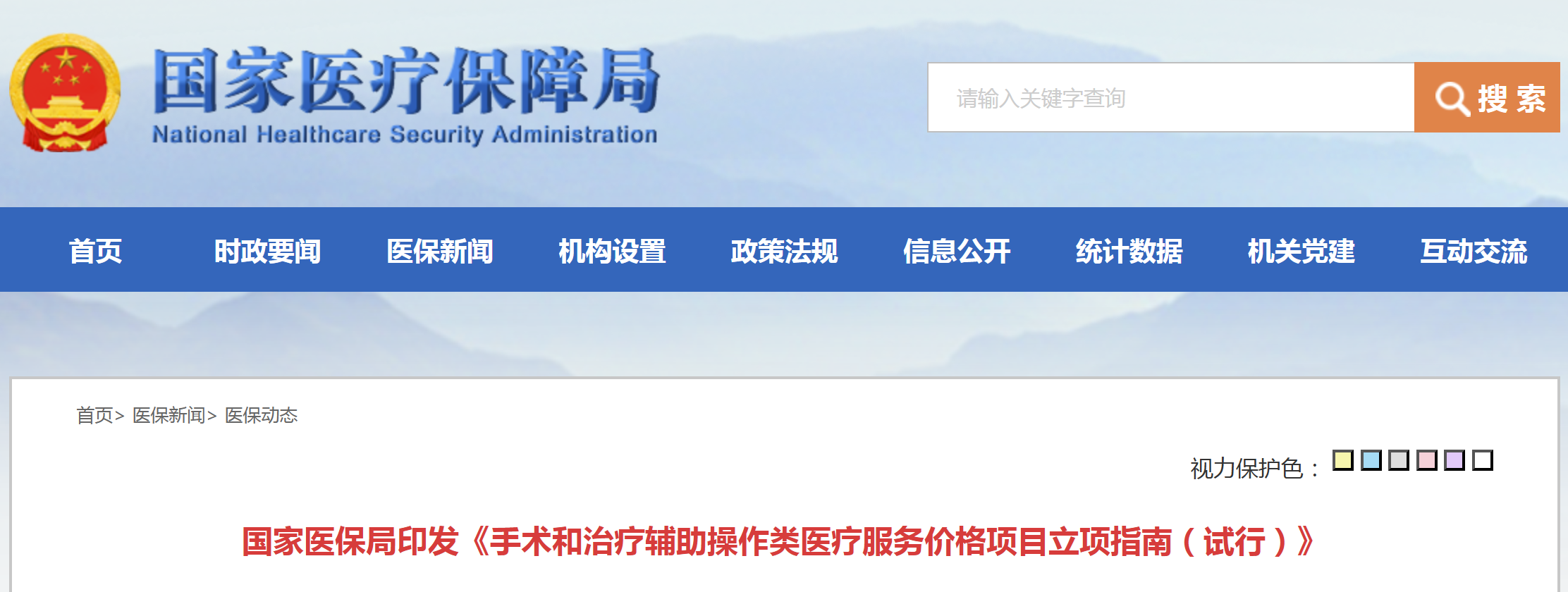 资讯
资讯 国家医保局规范手术和治疗辅助操作类医疗服务价格,手术机器人有了系统明确收费指引
近日,国家医保局编制印发《手术和治疗辅助操作类医疗服务价格项目立项指南(试行)》,将已有价格项目规范整合为37项,覆盖医学3D重建、生物3D打印、术中显微成像、手术路径导...
2026-01-21 15:12



